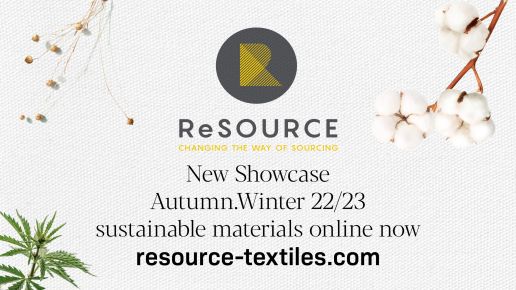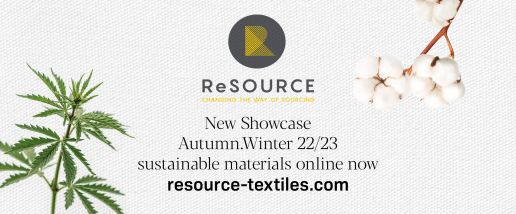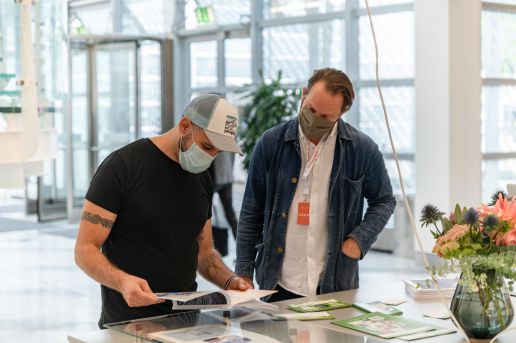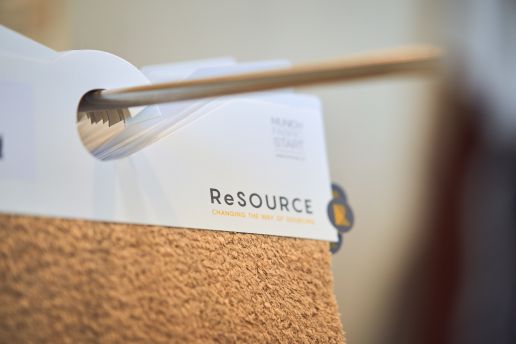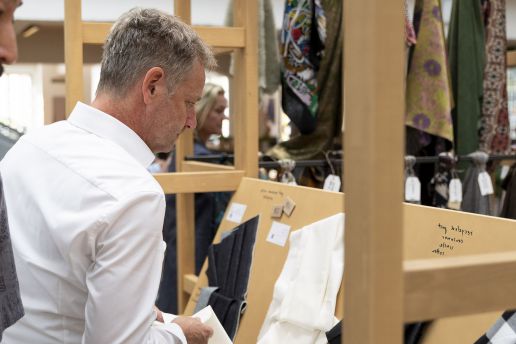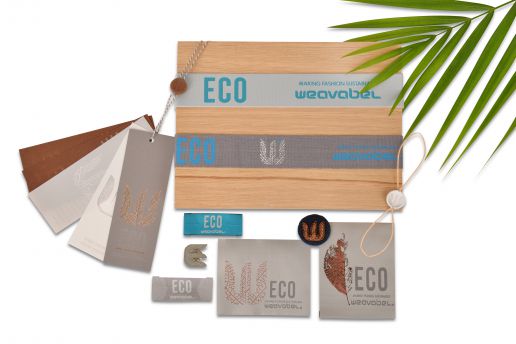Sustainable Sourcing
Now Launching at ReSOURCE
Over the past few months, we have been focused on growing our expertise and concentration of sustainable materials and sourcing solutions at our shows. The rebranded ReSOURCE area launched at MUNICH FABRIC START on 31 August – 2 September 2021 and successfully drew crowds to the new Autumn.Winter 22/23 showcase. Engaging and full of life, our welcomed guests discovered the bright and modern presentation, eager to source the latest in sustainable textile design and manufacturing.
Now, we are very pleased to announce the launch of the new ReSOURCE homepage www.resource-textiles.com. Get ready to SOURCE SUSTAINABLE WITH ReSOURCE!
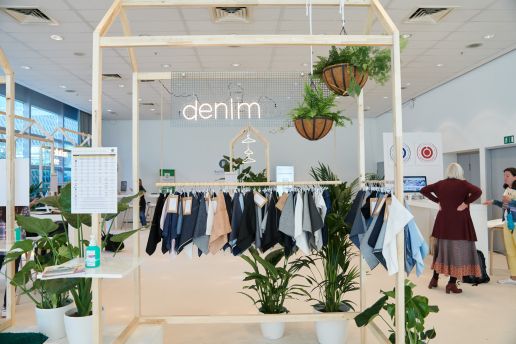
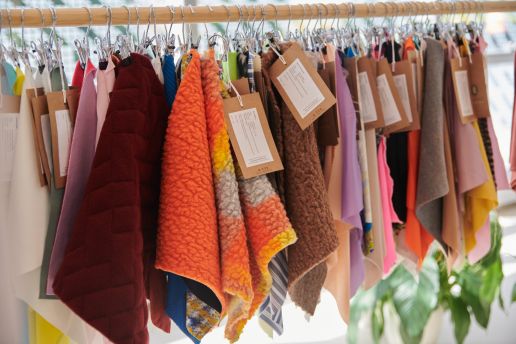
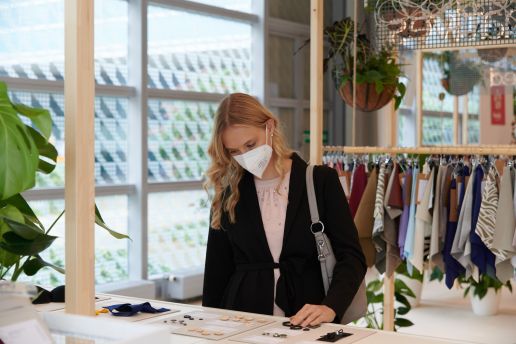
We have reached the next phase as part of our ongoing commitment to improve the accessibility and functionality of fair fashion sourcing, with the launch new ReSOURCE homepage. The website massively compliments the physical sustainable showcase of fabrics and accessories at our shows and succeeds as an independent tool for fashion professionals to source sustainable materials online with ease. But it can also be used by end consumers as a unique tool for information and inspiration.
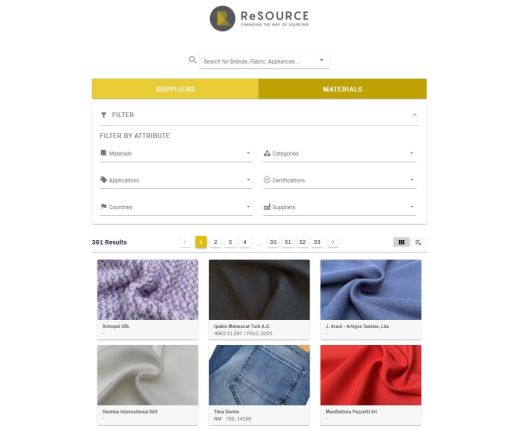
START SOURCING SUSTAINABLE MATERIALS
At the physical showcase, we proudly presented over 400 sustainable articles and now with the launch of the new ReSOURCE website, we are able to connect buyers, product managers and sourcing specialists with over 600 materials online. With a new and improved materials search function, textile professionals are invited to browse, filter and use our keyword search to find the perfect material match to suit their needs. Discover it for yourself!
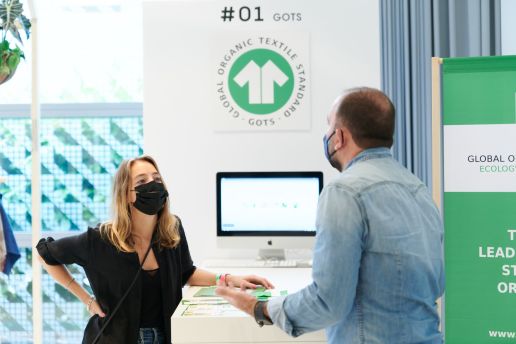
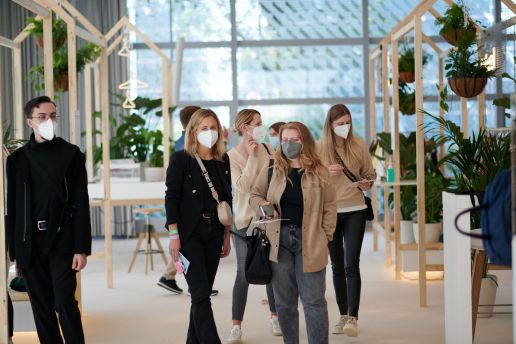
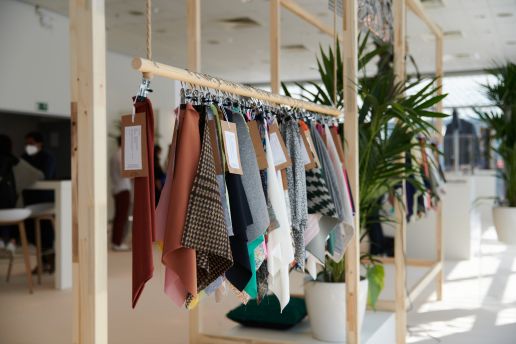
LEARN ABOUT CERTIFICATIONS
There are countless certificates for environmentally conscious fabrics and accessories. Textile certification is the means of guaranteeing the origin, specifications, level of quality or conformity of a product according to production, social and environmental standards. It is important to understand which certifications are relevant to you and learn what they stand for.
FIND YOUR PERFECT SUPPLIER MATCH
With improved search functions and complete supplier profiles available online, ReSOURCE optimises the way fashion brands and industry suppliers work together. Browse our supplier list to find manufacturers and industry partners who suit your needs. Read their profiles and discover what will make your partnership a great fit, from there you can directly contact the supplier and make your requests.
A Look Back at 2020
It is popular to indulge in the mindset that we must put 2020 behind us and as quickly as possible. Ready to leave 2020 in the past and look only to the New Year for the future. As if there lays hope in 2021, like a magic wand it would undo and restart the world anew. But we must look back in order to look forward which is especially the case for creative innovator. In a year confronted with radical change, I can look back and break down general defining responses into three categories as:
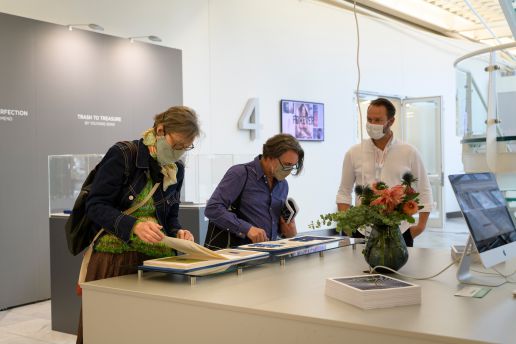
Those who ‘endured’ change.
Those who ‘embraced’ change.
Those who ‘ignored’ change.
I think, as an allegory, this is what designers and developers ‘do’ every day. It is part of their daily practice: endure, challenge and ignore. From this perspective the majority of society is now familiar with the same practices designers have faced working in their studios’.
Looking back at 2020 among the broad network of designers and students, I am pleased to see that they have continued their practices. Perhaps you’ll be surprised to hear that a lot of them even made profit from the changes that Corona brought us. Designers from the sustainable front were celebrated. Shy geniuses were noticed and people who were previously unaware of the major flaws in the fashion and textile industry, could no longer ignore the cracks in the system: 2020 revealed the cracks and broadened awareness.
A positive response to change: the focus on sustainability and the sense of urgency to work in this way has never been clearer and has never before revealed the system ‘as a whole’ as clearly as it seems ‘NOW’. In previous articles, I pointed out that designers have a natural instinct to reflect on their contribution, to focus on their niche-solution but to observe the system as a whole. Discover the Sustainable Innovations series on the Munique Blog.
Now, however, the designers are no longer the front runners and exhausted messengers, screaming alone into the dessert. Instead, the industry: mills, dyers, production factories, governments and consumers seem to join forces and come together to solve the bigger problems in the system. This sense of urgency is a huge call for collaboration.
Meaning that our designers are free to take up a new position, leading innovation to new frontiers without the frustration of static movement from the industry. More and more, designers are re-thinkers and importantly, value collaborators. From this perspective I am very hopeful. We are still in a stage of responding to the established system, economy and behaviours … BUT I am very sure that the movement of change will continue to get stronger and broader than ever.
The challenge for now is to keep the focus on virtue, value and volume which has been the focus of our Sustainable Innovations forum since the January 2019 edition of Munich Fabric Start.
Virtue: having an idea about what you do, why you act and how this impacts society and our planet in a positive way
Value: the added value to the system, others and the whole as an effect on a certain act
Volume: think modest and act from need, not from greed
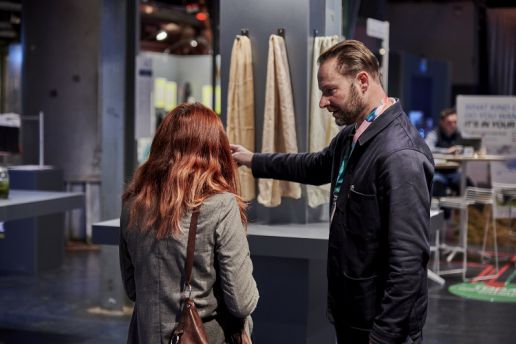
So, the actual risk in times of corona is to stress the choice between polarising OR collaborating; You are either ‘for’ or ‘against’. You are ‘in’ or ‘out’. The nuances, differences and challenges disappear from the stage. In the textile industry there is only one way: bridging the differences, uniting our similarities and cherish our authentic strengths, reminding me of the ‘Reach out and touch’ song.
The textile industry, as a front runner on fashion, can serve as the blueprint for a changing society and business practices. The ‘good’ practice. Connecting with the fact that all throughout history there exists no closer relationship to the human skin as textiles.
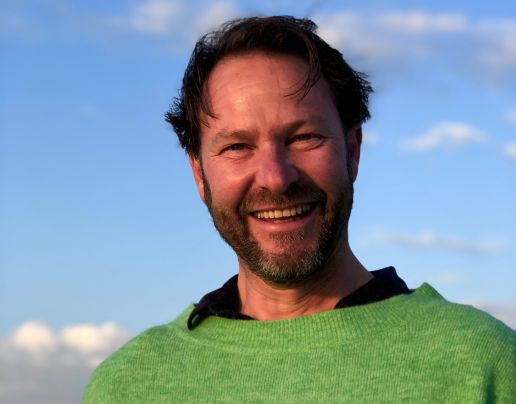
ABOUT THE AUTHOR
“I’m always keen to bring inspiring topics and sustainable projects into the spotlight through my work at the Sustainable Innovations forum at Munich Fabric Start and with each of my contributions to the Munique Blog. Check out @simonangelmfs for more sustainable projects, inspiration and discovery.“
Simon Angel | sa@simonangel.nl
Understanding Sustainable Manufacturing: Our Icon System
UNDERSTANDING SUSTAINABLE MANUFACTURING: OUR ICON SYSTEM
Introduced for the first time at the latest edition of Munich Fabric Start in February 2020, our icon guidance system became a welcomed and essential tool for the professionals visiting our trend forums. Saving time and streamlining the search process, our guidance system has been developed to accompany trend forum fabrics, trims and products to quickly and clearly communicate sustainable properties and technical functions. The response to this system has been hugely positive, based on feedback received at the show.
Take a look at the system in action at our trend forums:
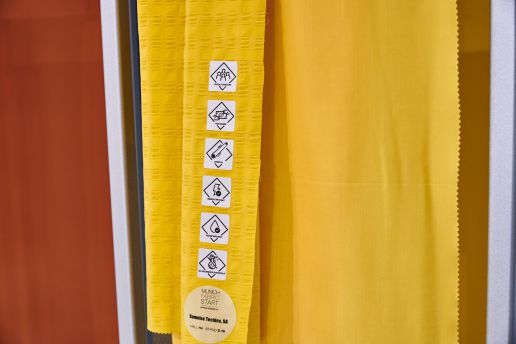
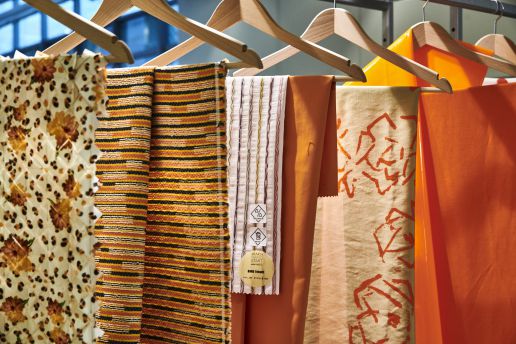
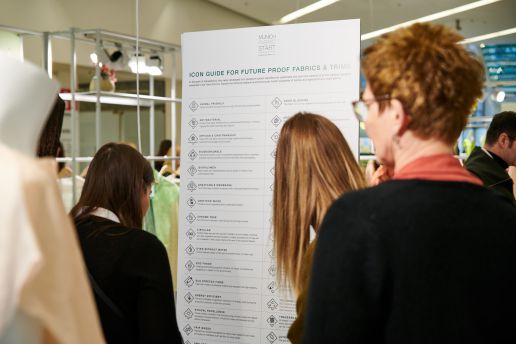
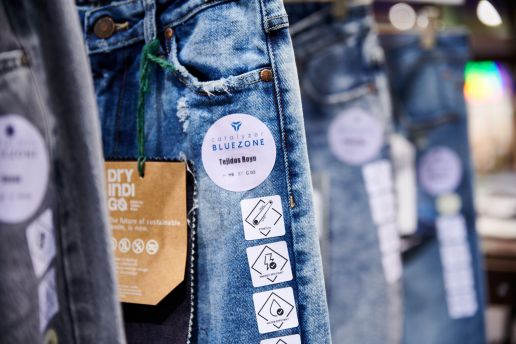
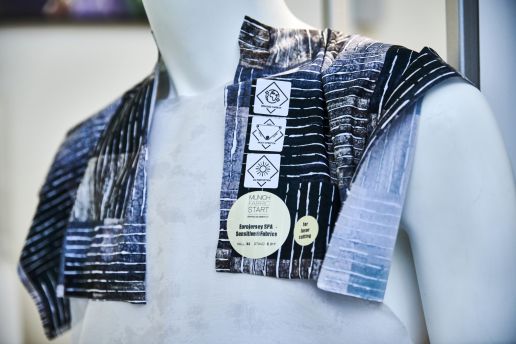
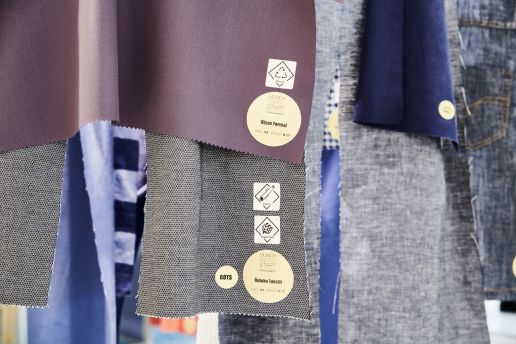
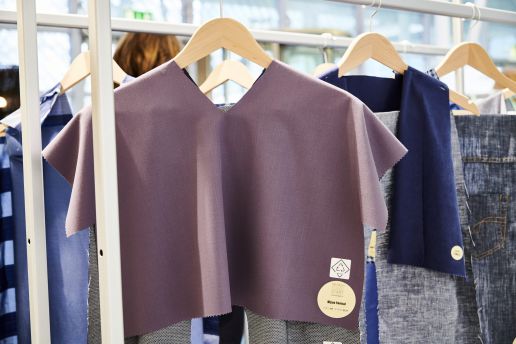
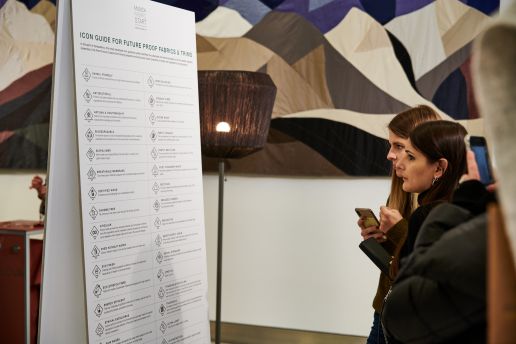
Each of the 44 icons indicates a specific characteristic related to the sustainability or performance of the respective product. With the help of these icons, manufacturers can highlight the added value of their products and at the same time make it easier for interested buyers to navigate through the increasingly vast range of products on offer.
With our new icon guidance system, we are highlighting the interface between contemporary aesthetics and invisible but important advanced product features. In doing so, we see MUNICH FABRIC START neither as a certification body nor an audit agency – for the given classification, we rely on the information and honesty of the respective supplier of the corresponding samples. We are thus taking an important step towards information, transparency and responsible action in the interest of the industry.
Jo Baumgartner, Fabrics & Trends MUNICH FABRIC START
In this sense, all specific properties such as eco-labels, social standards, performance indicators, limit values, chemical ingredients, etc. must be verified again with the respective provider.
Sustainable Standards Guaranteed at ReSOURCE
With increasing importance placed on sustainability, the need to guarantee truly sustainable standards is in greater demand by buyers and brands. Ahead of their showcase at ReSOURCE at the next edition of MUNICH FABRIC START, we interviewed representatives Heike Hess of the International Association of Natural Textiles (IVN) and Franziska Dormann of Global Organic Textile Standard (GOTS).
Briefly, IVN awards two quality seals for ecologically produced products: NATURTEXTIL and NATURLEDER. For both seals, the association has defined parameters that have become a standard in the industry. The association is co-owner of GOTS, the worldwide standard for the production of sustainable textiles on an industrial scale.

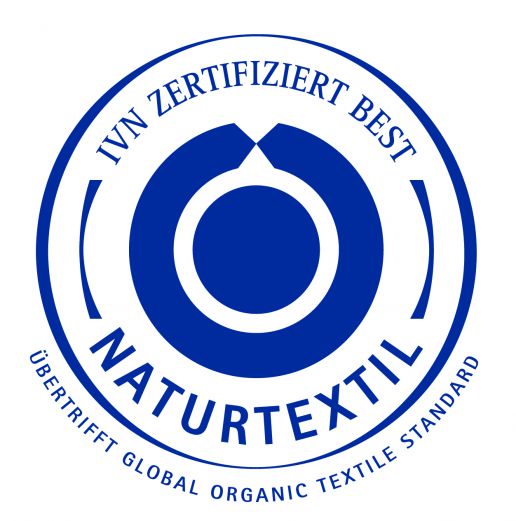
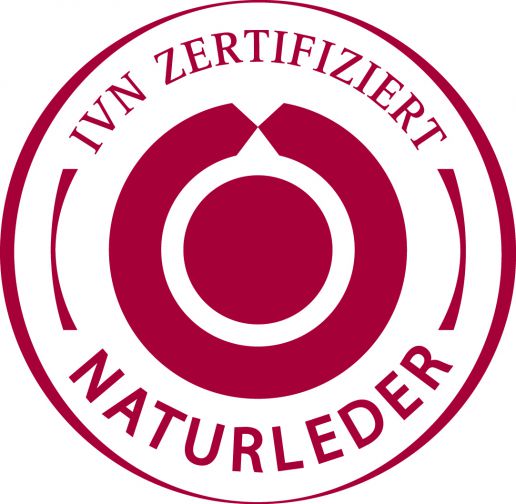
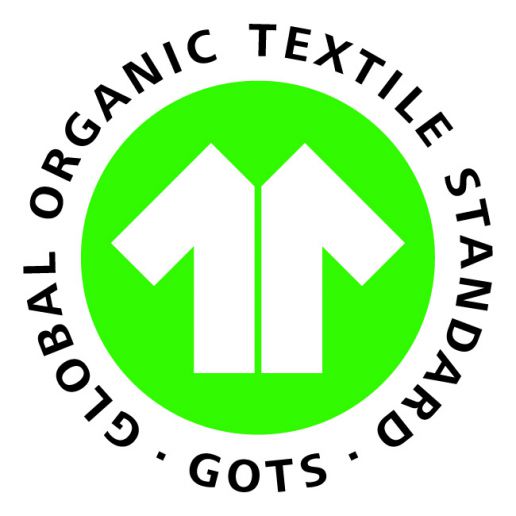
What is the most frequently asked question at the beginning of a consultation?
GOTS: Often it begins with a general introduction to the Global Organic Textile Standard, i.e. What is covered by the standard? How is this ensured? By reviewing the strict social and environmental criteria throughout the entire textile supply chain – from the fields to the wardrobe – GOTS guarantees safety and transparency for the consumer. The independent certification ensures credibility compared to mere self-explanatory statements.
IVN: Most visitors ask us for certifications and seals. How to get certified, which fabrics and accessories must be sourced to reach IVN BEST or GOTS requirements or how do our seals differ from others founds in ReSOURCE, register here.
What changes do you want brands to make in the next 5 – 10 years to bring about and anchor sustainable aspects of the textile industry?
GOTS: I think most people have recognized the importance and urgency of this because no one can fly under the radar for long. Sustainability interests those who have to justify themselves the most. For us, these are the brands that sell. Everyone involved is interested, the question is which actions follow? In industry, the spectrum ranges from greenwashing to genuinely practiced sustainability. Consumers range from lip service to showing a real willingness to spend more on sustainable products.
IVN: Many buyers, especially brands, are looking for certified fabrics. The selection of certified fabrics made with natural fibres in ReSOURCE is quite large, but for synthetic and regenerated fibres there is a lack of products that have been awarded truly sustainable seals. I would like to see more interest from the brands here, which would result in a stronger commitment on the part of the fabric suppliers.


How has the brands’ approach to research and purchasing changed over the last seasons?
GOTS: The trade fairs, as well as specific enquiries by e-mail, have resulted in more and more brands wanting to find out which suppliers are already GOTS-certified. Here I refer to the public database with almost 6,000 certified companies. Many companies that are interested in GOTS want to continue working with their existing suppliers and therefore jointly go the way of gaining certification of their entire supply chain.
IVN: You can clearly see that the topic of sustainability is becoming increasingly important for brands. Visitors at ReSOURCE are better prepared and ask more concrete questions. Many are looking for specific products and have clear expectations about what a fabric should be like. The typical length of time brands exhibit in the ReSOURCE area has definitely increased. More and more buyers who do not explicitly belong to sustainable companies are also showing interest in the products exhibited at ReSOURCE.
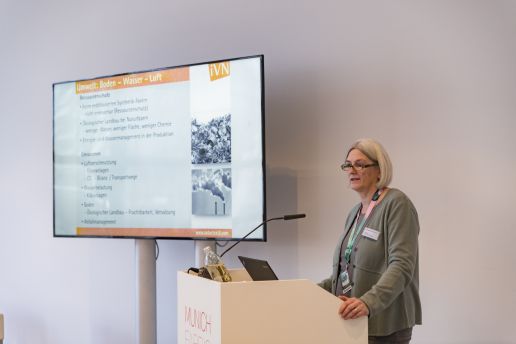
What are the specific challenges facing a future-oriented fashion industry?
IVN: The challenges vary depending on the size and orientation of the fashion companies. Smaller brands – especially in the sustainable segment – have problems finding certified suppliers who also supply small quantities. Larger companies use many different materials and accordingly many different suppliers. It is difficult to have an overview of the entire supply chain up to your own company, especially if you attach importance to a certain level of sustainability held by suppliers and sub-suppliers. It is still a challenge to reconcile certification and sustainability with the profitability of products. For particularly fashionable brands, it is still challenging to find exclusive or unique fabrics and additionals in sustainable qualities. There are certainly some other challenges, but overall it is more important that today means making sustainable fashion easier and more profitable than it was a few seasons ago.



View Expands on Sustainability
From the 3rd – 4th December 2019, VIEW Premium Selection will showcase the first material developments, qualities and colour tendencies for the new SPRING.SUMMER 2021 season a few weeks prior to MUNICH FABRIC START. TEXCART, TEJIDOS ROYO, LANIFICIO ROMA, DUTEL CREATION and BORNEMANN ETIKETTEN are among our exhibitors who will join the expanded presentation of sustainable fabrics and accessories showcased at VIEW:
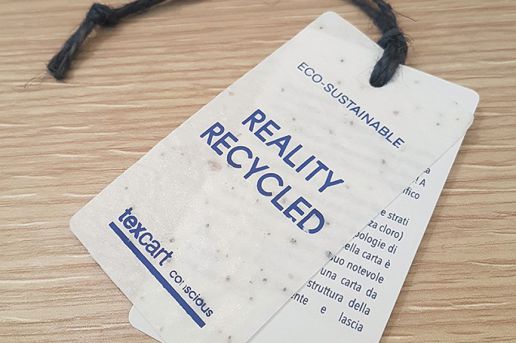
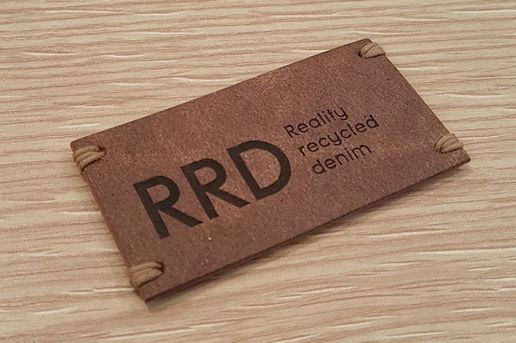
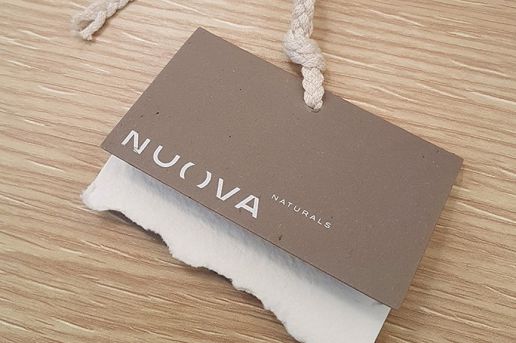
What does it mean to your company to take more responsibility in terms of micro plastic and overconsumption?
TEXCART: It has been our focus for the last 5 years, starting with the materials we use on a daily basis; boxes, envelopes, general use paper, collection boards, stickers, where possible these are made in recycled paper and recycled material. In terms of over consumption, we care about enacting change and so we typically produce our articles on demand to reduce leftovers.
TEJIDOS ROYO: With the pioneering DryIndigo® technology developed by Spanish manufacturer Tejidos Royo, it is now possible to use 0% water in the denim production process. This is a real milestone in the textile industry. It also reduces energy consumption by 65% during manufacture, uses 89% less chemical products, and completely eliminates waste water discharge. As a result of implementing DryIndigo® technology in 2019, Tejidos Royo has saved more than 1 million litres of water used in denim dyeing. The economic contribution from the first million litters saved has been donated to UNICEF for its water and sanitation programmes which improve the lives of thousands of children around the world.
DUTEL: For the last 2 years, Dutel has been developing a sustainable range called ‘PURE’ which uses recycled polyester warp and organic cotton weft yarns. We plan to swap all our polyester warps into recycled ones. The challenge is to make an entirely sustainable collection and to source the serious reliable suppliers with traceability. For years we have collected and recycled any waste in our factory. As well, a new air conditioning system has considerably reduced our electricity consumption.
BORNEMANN: Besides providing sustainable labelling solutions for our customers, we aim to optimize our internal processes as well. By digitalizing our documentation, working on rapid prototyping and investing an increasing amount of time and effort in digital sampling we are reducing input of resources on various levels.
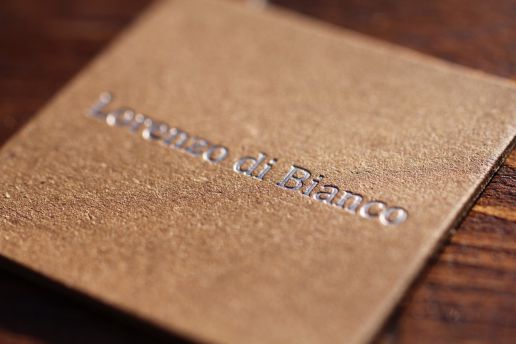
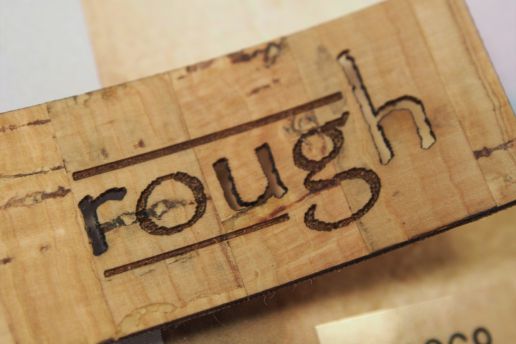
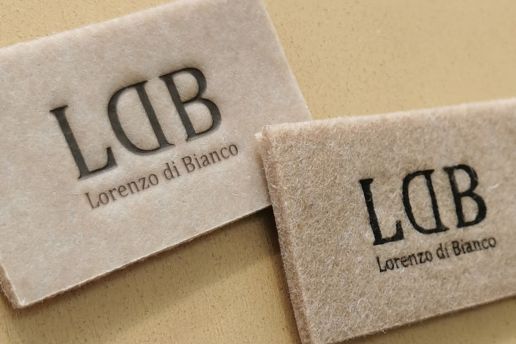
Tell us about the latest collection you are exhibiting at VIEW?
TEXCART: Our collection, as usual, will be complex and composed of several articles produced in a variety of materials, techniques and designs. We have prepared different themes which follow the tendencies but also in sustainable and recycled materials and as always we will feature a range of denim accessories. We are continuously updated in terms of tendencies, new techniques and materials, especially in sustainable and eco-friendly news through our large network of professional partners.
LANIFICIO ROMA: At Lanificio Roma we are sensitive to the use of recycled yarns, many fabrics of the latest collection are eco-sustainable. The qualities in our eco-cotton and viscose ECOVERO are made with sustainable yarns.
DUTEL: Summer 2021 by this jacquard specialist makes the most of shiny effects on vibrant, crunchy surfaces. Taffeta and voile grounds are enriched with transparent shines with a cellophane crunch. The colour palette is built on whites and pearly whites. Surfaces are covered with iridescent yarns to create hairy effects. Lightweight, cotton-like jacquards are lit up with a pearly sheen, patterns resonate thanks to colourfully iridescent yarns. Filigree or bold florals paired with bright stripes are enhanced with a colourful gleam.
BORNEMANN: We present our latest developments for Women/Menswear Denim, Modern Casual and Workwear. The challenge of workwear lies in combining fashion and function, materials need to fulfil certain standard specifications. Among other items, we are showing several flame-retardant products, woven, printed and silicon that stand up to current norms.
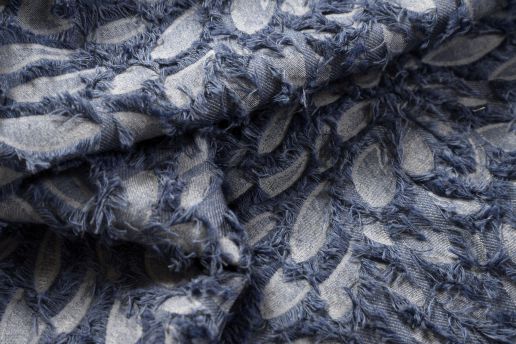
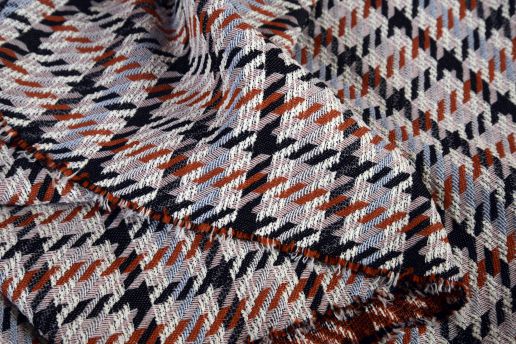
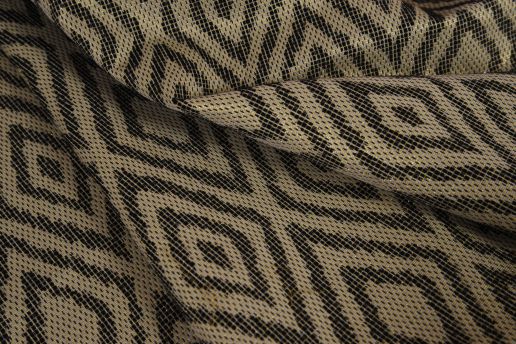
Shop less, waste less, produce less. What are the biggest challenges for you to continue to be successful and sustainable?
TEJIDOS ROYO: In the textile industry, we need to rework our processes to become a much more sustainable industry. DryIndigo is a major milestone in this area, and we hope that it inspires both the sector and the brands to develop more technologies that contribute to making our industry a much more responsible one towards our surroundings. We are facing the sustainable denim revolution and, with One Million Liters, we want everyone to take part in it so that, together, we can meet the United Nations Sustainable Development Goals before 2030.
LANIFICIO ROMA: We produce recycled raw material fabrics to offer significant benefits to our planet. We have created a new product with reduced water consumption, in order to fight the effects of the increase in pollution and excessive consumption. Our aim is to waste less and re-use production and consumer waste as new resources.
DUTEL: Our target is to offer top quality which is lasting over the years, especially for our ‘ALLURE‘ range which offer timeless, subtle textures and enlarges our offer for different customers types such as accessories, scarves, shoes, hats, but also kidswear. Produce less? No! To guarantee our business’ survival, we cannot produce less, but more instead offer more variety. Not to produce less, but produce better!
BORNEMANN: Balancing creativity, sustainability and efficiency seems to be the biggest challenge. In our day to day, this means we have to cooperate closely with our customers to understand their priorities. And, in the long run, work towards a situation where none of the three aspects are in conflict with each other. Digitalisation has a big impact on this, so mastering the challenges of digitalisation is our priority as a company.
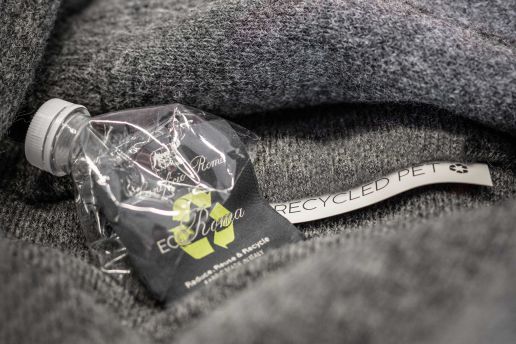
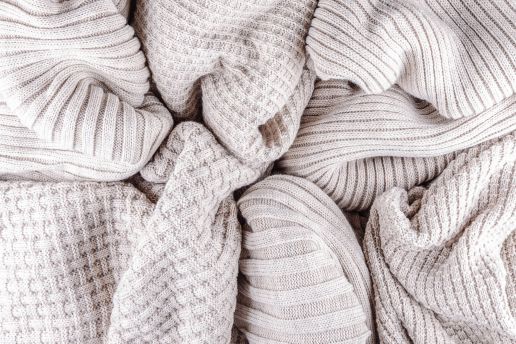
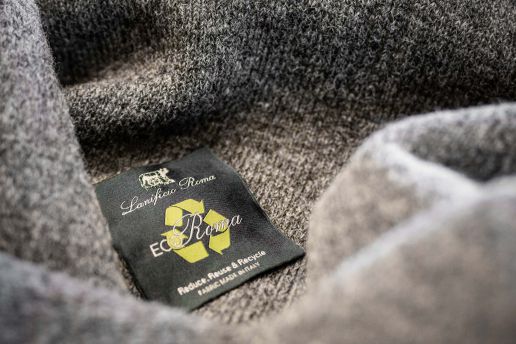
Weavabel Insist on Sustainable
Established over 30 years ago Weavabel provides Garment branding solutions, managing fashion brands trims from design to delivery in several regions across the globe. Over the years, their product range has expanded through innovations and latest technologies to help brands stand out in the market place. Their product range includes, labels, swing tickets, branded packaging, badges, metal trims, heat transfers, leather products and much more.
Especially over the last 3 years, Weavabel has heavily invested in developing sustainable materials for fashion branding to help brands meet their sustainable needs and goals. With sustainable sourcing, recycling and improved innovations in production methods they will launch their latest range with us at Munich Fabric Start!
Behind the Brand
When talking about sustainability, what images come to mind? Green, brown flecked effects, grainy feels? Our designers questioned, does this have to be? To support premium brands that want to make an impression with their trims yet meet the company’s sustainable goals we wanted to develop a premium sustainable product range to support this. So, we’ve moved through a journey with our eco ranges, initially producing very basic products to our latest range which includes techniques such and embossing, debossing and die cutting to give a premium finishes.
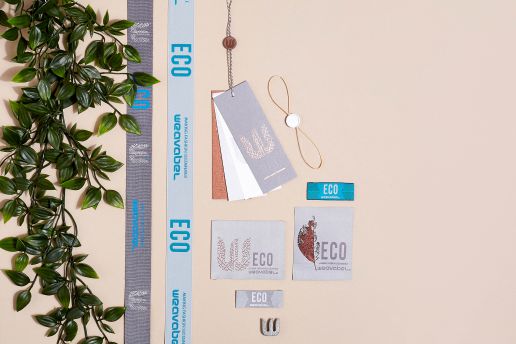
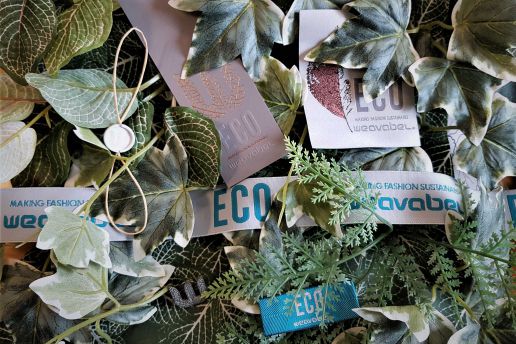
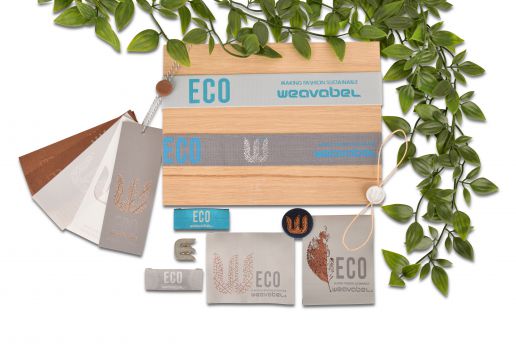
What’s in the range?
Bamboo paper and tape– Bamboo is both a sustainable and renewable alternative for making paper. As compared with traditional wood sources, bamboo is ready for harvest after 2 to 3 years while traditional wood materials take 5 to 8 years and doesn’t require replanting after harvesting.
Stone paper – Stone paper is made from crushed stone waste rather than from wood-pulp. Water is not used in the production and to produce the paper only takes 15% of the energy standard paper uses and only 67% less CO2 is released during production. The paper is totally waterproof and fluid resistant and it’s durable and can withstand water, grease and dirt.
FSC paper – FSC certified paper allows traceability and ensures the highest environmental and social standards are met in the paper.
Biodegradable seal – Seals made from D2W substances which break-down over time, this normally is between 2 – 5 years and these only biodegrade when put in landfill with active microorganism environment.
Recycled polyester tape and labels – Tape produced using post-consumer recycled yarns reducing landfill.
Organic cotton labels – 100% Organic Cotton Labels produced using GOTS certified materials. Organic cotton is grown organically in subtropical countries from non-genetically modified plants, and without the use of any synthetic agricultural chemicals such as fertilizers or pesticides.
Fully recyclable seal – Metal and paper seal with logo printed in bamboo paper & natural twisted paper for string. This is fully recyclable.
Visit Weavabel at their stand and collect your own set of the eco collection. Hall 1, stand number B08.
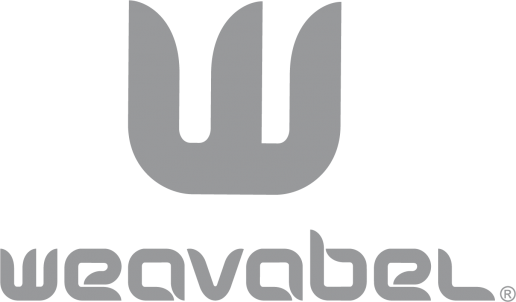
Weaveabel
sales@weavabel.com
+44(0)113 239 1122
Leeds, England
www.weavabel.com


